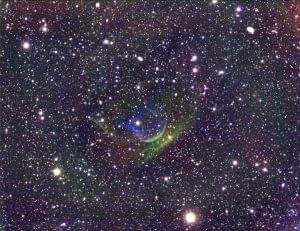A new telescope called the “Condor Array Telescope” may open up a new world of the very-low-brightness universe for astrophysicists. Four new papers, published back to back in the Monthly Notices of the Royal Astronomical Society (MNRAS) this month, present the first scientific findings based on observations acquired by Condor. The project is a collaborative led by scientists in the Department of Physics and Astronomy at Stony Brook University and the American Museum of Natural History (AMNH).
According to lead researchers Kenneth M. Lanzetta, Ph.D., a Professor in the Department of Physics and Astronomy and Stefan Gromoll of Stony Brook, and Michael M. Shara, Ph.D., Curator in the Department of Astrophysics at the AMNH, Condor is now in full operation. The new “array telescope” uses computers to combine light from several smaller telescopes into the equivalent of one larger telescope and is able to detect and study astronomical features that are too faint to be seen with conventional telescopes.
In the first paper, Lanzetta and colleagues used Condor to study extremely faint “stellar streams” surrounding the nearby galaxy NGC 5,907, a well-known spiral galaxy located some 50 million light years from Earth.
